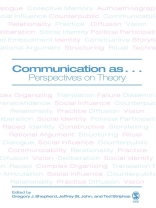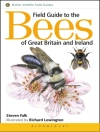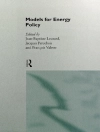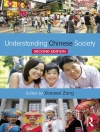What does it mean to argue that communication is organizing? Or ritual? Or failure? What is at stake in choosing one metaphor or stance over another? What is gained and what is lost – for the field, for the theories themselves, and especially for humans communicating in everyday contexts? In Communication as…: Perspectives on Theory, editors Gregory J. Shepherd, Jeffrey St. John, and Ted Striphas bring together a collection of 27 essays that explores the wide range of theorizing about communication, cutting across all lines of traditional division in the field.
The essays in this text are written by leading scholars in the field of communication theory, with each scholar employing a particular stance or perspective on what communication theory is and how it functions. In essays that are brief, argumentative, and forceful, the scholars propose their perspective as a primary or essential way of viewing communication with decided benefits over other views.
Key Features:
- Compares and contrasts different metaphorical views on the theory and practice of communication, challenging students to develop their own argument about communication theory
- Promotes an alternative way of examining communication problems – through the engaged interplay of a diversity of positions – encouraging readers to think through contemporary problems and questions in the field
- Compels readers to confront competing theoretical positions and their consequences head-on rather than outlining theories in ways that might separate them from their real-world consequences
Communication as… is an excellent textbook for advanced undergraduate and graduate courses on communication theory in the fields of Communication, Journalism, Sociology, and Psychology.
Зміст
Acknowledgments
Introduction
Part I: Making
1. Relationality – Celeste M. Condit
2. Ritual – Eric W. Rothenbuhler
3. Transcendence – Gregory J. Shepherd
4. Constructive – Katherine Miller
5. A Practice – Robert T. Craig
Part II: Materializing
6. Collective Memory – Carole Blair
7. Vision – Cara A. Finnegan
8. Embodiment – Carolyn Marvin
9. Raced – Judith N. Martin & Thomas K. Nakayama
10. Social Identity – Jake Harwood
11. Techne – Jonathan Sterne
Part III: Contextualizing
12. Dialogue – Leslie A. Baxter
13. Autoethnography – Arthur P. Bochner & Carolyn S. Ellis
14. Storytelling – Eric E. Peterson & Kristin M. Langellier
15. Complex Organizing – James R. Taylor
16. Structuring – David R. Seibold & Karen Kroman Myers
Part IV: Politicizing
17. Political Participation – Todd Kelshaw
18. Deliberation – John Gastil
19. Diffusion – James W. Dearing
20. Social Influence – Frank Boster
21. Rational Argument – Robert C. Rowland
22. Counterpublic – Daniel C. Brouwer
Part V: Questioning
23. Dissemination – John Durham Peters
24. Articulation – Jennifer Daryl Slack
25. Translation – Ted Striphas
26. Communicability – Briankle G. Chang
27. Failure – Jeffrey St. John
Index
About the Editors
About the Contributors
Про автора
Ted Striphas (Ph.D., University of North Carolina–Chapel Hill, 2002) is an Assistant Professor in the Department of Communication and Culture, Indiana University. His primary research interests include media historiography, cultural studies, Marxism, and communication theory. At present he is at work on a cultural history of the U.S. book industry tentatively entitled, Equipment for Living: Everyday Book Culture in the Making. He also is co-editor (with Kembrew Mc Leod) of a forthcoming special issue of the journal Cultural Studies on the politics of intellectual properties. His work has appeared in, among other places, Critical Studies in Media Communication, Cultural Studies, The Review of Education, Pedagogy, and Cultural Studies, Social Epistemology, and Television and New Media. He is a 2004 recipient of the Gerald R. Miller Outstanding Dissertation Award from the National Communication Association.












